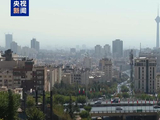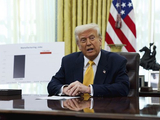Korean Workers' Arrests; Israel's E1 Settlements; China's Digital Currency and Trade Ambitions; ABS and A-Share Growth; China's Diplomatic and Automotive Advances

The Impact of Korean Auto Workers' Arrests on Future Investments
Recent events highlight the arrest of numerous Korean nationals in the U.S. during an immigration raid at a Hyundai-LG battery factory in Georgia. Both World Journal and Liberty Times report that over 300 of the 475 detainees were suspected of working illegally. The South Korean government expressed concern that this incident, described as "bewildering," could create a chilling effect on future investments in the U.S.
These developments indicate a potential reevaluation by South Korean firms regarding the risks of setting up operations in the U.S. World Journal stresses that South Korean companies have invested billions in the U.S., which makes the situation particularly sensitive. The Korean government is negotiating with Washington to ensure that investment-related visas function smoothly, reflecting the importance of technical personnel in new facilities.
Liberty Times echoes these concerns, emphasizing the cultural differences cited by South Korean President Yoon Suk-yeol as a reason for the misunderstanding. Both articles suggest that such incidents could deter direct investment from Korean firms due to the perceived risks and complexities of the U.S. immigration and labor systems.
It appears that both publications aim to underscore the potential economic impact and the diplomatic tensions arising from this event. By focusing on the broader implications for U.S.-Korea economic relations, they highlight the necessity for clear policies to facilitate smoother business operations and labor arrangements.
Divergent Views on Israel's E1 Area Settlement Plans
Recent events show a stark difference in how various publications report on Israeli Prime Minister Benjamin Netanyahu's declaration against the establishment of a Palestinian state. Liberty Times highlights Netanyahu's firm stance during a ceremony in the West Bank, where he stated, "There will never be a Palestinian state; this land belongs to us." The article underscores Israel's ongoing ambition to expand settlements in the contentious E1 area despite international opposition, reflecting a narrative of unwavering Israeli sovereignty and security interests.
Meanwhile, Sina News also covers Netanyahu's remarks, noting his approval of the E1 settlement plan, which has faced international criticism. The report emphasizes the potential geopolitical consequences of such expansions, suggesting that the development could bifurcate the West Bank, complicating the territorial contiguity of a future Palestinian state. The narrative here seems to focus on the broader implications of Israel's settlement policies, hinting at the possible destabilization of regional peace efforts.
These developments indicate a clear divide in media portrayal: while Liberty Times leans towards showcasing Israeli determination and internal policy, Sina News points out the potential international fallout and the challenges posed to peace negotiations. Both stories, however, highlight the controversial nature of the E1 area settlements, a longstanding issue in Israeli-Palestinian relations.
China's Digital Currency and Trade Ambitions on the Global Stage
Recent events show China's commitment to advancing its digital currency and trade initiatives, as highlighted by the Securities Daily articles. At the forefront is the digital yuan's prominence during the 2025 China International Fair for Trade in Services, where its innovative applications drew significant attention. The first article from Securities Daily emphasizes the bustling interest in digital yuan experiences, with various financial institutions showcasing its integration into daily life and cross-border trade. Attendees were captivated by the digital currency's immersive experiences, such as personalized coffee dispensing via a digital yuan wallet.
Meanwhile, the second article from the same source underscores the strategic importance of digital trade as China positions itself as a trade powerhouse. With plans to unveil numerous first-time innovations across China, Asia, and globally, the article outlines ambitions to enhance traditional industries and foster emerging sectors through digital trade. The narrative highlights the Chinese government's commitment to expanding digital trade openness and international cooperation, as evidenced by the establishment of a 'Future Technology Arena' and several themed zones.
These developments indicate China's dual focus on promoting its digital currency and expanding its influence in global trade. The Securities Daily's portrayal of the digital yuan as a central figure at the trade fair suggests an intention to showcase China's technological prowess and readiness to lead in digital finance. Similarly, the emphasis on digital trade innovations reflects a broader strategy to integrate China more deeply into the global economic fabric, potentially setting standards and practices in digital commerce.
The Rise of ABS and A-Share Financing in China: A Comparative Analysis
Recent events show a significant surge in the issuance of Asset-Backed Securities (ABS) in China, with the number of corporate ABS breaking the 1,000 mark within the year, totaling 1,006 issuances. According to Securities Daily, this milestone corresponds to a total issuance amount of 8,902.63 billion yuan. This increase highlights the accelerating pace at which Chinese corporations are utilizing ABS as a financing tool, driven by favorable policy environments and improved market recognition.
These developments indicate that the regulatory framework has become more conducive, with enhancements in the issuance process and increased market participation. The article emphasizes the diversification of ABS products, noting the rise of innovative asset types such as data assets and intellectual property, which are gaining traction alongside traditional categories like leasing and supply chain finance.
Meanwhile, the news highlights a parallel trend in the A-share market, where refinancing activities have reached over 8,000 billion yuan this year. As reported by Securities Daily, there has been a 258.7% increase compared to the previous year. The resurgence of the A-share refinancing market is largely attributed to policy reforms and the demand for capital in strategic sectors such as new energy and semiconductors.
It appears that both articles from Securities Daily present a consistent narrative of policy-driven growth in financial markets. The emphasis on regulatory improvements and market dynamics suggests an intention to highlight the positive impacts of government measures on economic revitalization. While the ABS market is portrayed as a critical tool for corporate financing and innovation, the A-share market's growth is framed as essential for technological advancement and industrial upgrading.
In summary, the articles collectively underscore the strategic alignment between policy initiatives and market expansion, reflecting China's broader economic objectives. The narrative across both pieces suggests a concerted effort to illustrate how financial instruments are being leveraged to support national development goals.
Diplomatic Engagements and Automotive Achievements in China
Recent events highlight China's active role in regional diplomacy and its burgeoning automotive industry. The Foreign Ministry of China reported that on September 9, 2025, Chinese envoy Deng Xijun participated in high-level discussions with representatives from Thailand, Cambodia, and Malaysia concerning border conflicts between Cambodia and Thailand. The Chinese side emphasized its commitment to fairness and mutual comfort, aiming to facilitate sustainable ceasefire and constructive relations. The article underscores China's diplomatic efforts and its desire to be seen as a stabilizing force in Southeast Asia, reflecting its broader foreign policy aspirations.
The Securities Daily revealed that the first eight months of 2025 saw China's automotive production and sales surpass 21 million units, marking a significant milestone with year-on-year growth of 12.7% and 12.6%, respectively. This achievement is particularly driven by the new energy vehicle (NEV) sector, which not only dominates the domestic market but also boosts export growth. The article attributes this success to favorable policies and consumer acceptance, suggesting a robust outlook for China's NEV industry. It also highlights the competitive edge of Chinese automakers in global markets, with major companies like Chery and BYD expanding their overseas footprints.
These developments indicate China's strategic positioning on both diplomatic and economic fronts. While the Foreign Ministry's narrative projects an image of China as a regional peacemaker, the Securities Daily focuses on the country's economic prowess, particularly in NEV advancements. The juxtaposition of these stories reflects China's dual approach of wielding soft power through diplomacy while showcasing hard power through economic achievements.



